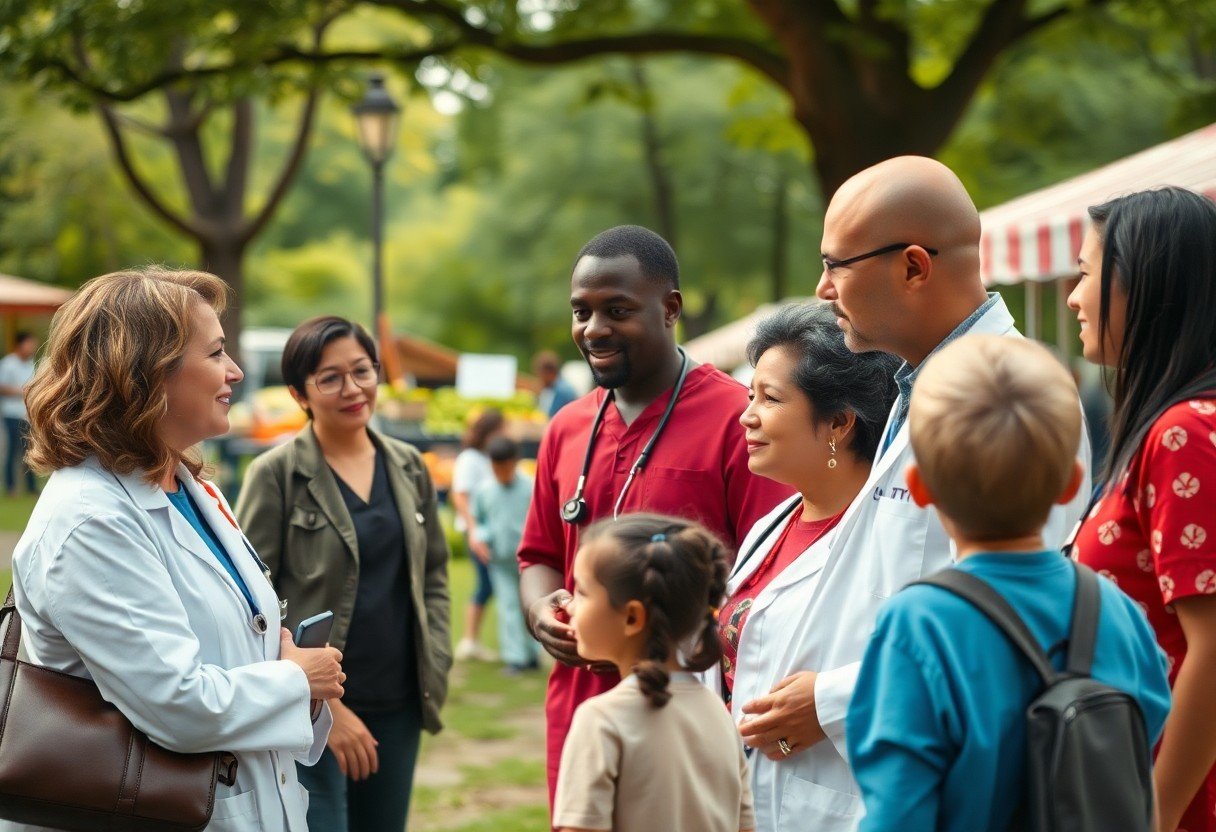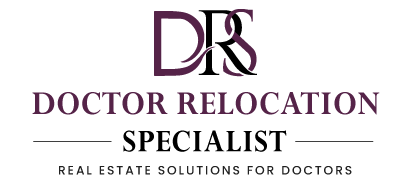Defining Community Influence
To understand community influence, you must consider the impact your presence has on the local environment. As a relocating physician, your expertise and leadership can shape the healthcare landscape and contribute to the community’s well-being.
The Role of Physicians in Shaping Local Culture
Toward establishing a strong community presence, you will play a significant role in shaping local culture through your medical practice and involvement in community events, allowing you to build trust and credibility with your patients and neighbors.
Building Relationships with Local Leaders
Delving into the specifics of community engagement, you will need to define your approach to building relationships with local leaders, which is crucial for collaborative efforts and creating a positive impact on the community you serve.
The key to successful relationships with local leaders lies in your ability to communicate effectively and find common goals. You will need to identify the leaders who share your vision for the community’s health and well-being and work together to achieve it, thereby strengthening your influence and creating a lasting impact on the community you have chosen to serve.

Relocation Strategies
It is crucial to develop a well-thought-out plan when relocating to a new area as a physician, allowing you to make a positive impact on your new community from the start.
Researching the Local Community
By understanding the local demographics, healthcare needs, and existing community programs, you can tailor your approach to effectively engage with your new community and address their specific needs.
Identifying Key Stakeholders
On arrival, you will need to identify the key stakeholders in your new community, including local healthcare providers, community leaders, and organizations that can help you build a strong network and amplify your influence.
With a deep understanding of these stakeholders and their roles, you can begin to build meaningful relationships, collaborate on community initiatives, and establish yourself as a trusted and valued member of your new community, ultimately enhancing your ability to drive positive change and cultivate a vivid community influence that benefits everyone involved.
Effective Communication
While developing a strong community influence, you will find that effective communication is key to building trust and rapport with your patients and colleagues. You can achieve this by being approachable, transparent, and responsive to their needs.
Active Listening and Empathy
Contrary to what you might think, actively listening to your patients and showing empathy can have a profound impact on your relationships with them. You will find that by doing so, you can better understand their concerns and provide more personalized care.
Clear and Concise Messaging
Concisely, you should strive to communicate complex medical information in a way that is easy for your patients to understand. You can do this by avoiding jargon and using simple language to explain their conditions and treatment options.
Indeed, clear and concise messaging is crucial for ensuring that your patients are well-informed and able to make informed decisions about their care. You can achieve this by taking the time to explain things clearly, answering their questions, and providing them with written information to take home and refer to later. By doing so, you can help to build trust and strengthen your relationships with your patients.
Collaboration and Partnerships
Not only can relocating physicians make a difference by working together with others, but you can also build a strong network of like-minded individuals who share your vision for a healthier community.
Working with Local Organizations
Working closely with local organizations, you can establish yourself as a trusted and dedicated member of the community, and your influence will grow as a result of these connections.
Developing Mutual Goals and Objectives
Among the many benefits of collaboration, you will find that developing shared goals and objectives with your partners is an effective way to create a unified front and drive positive change in your community.
Developing these mutual goals and objectives allows you to leverage your collective strengths and expertise, creating a more significant impact than you could have achieved alone, and as you work together, you will find that your community influence expands, enabling you to make a more substantial difference in the lives of those you serve.
Measuring Impact
Your ability to measure the impact of your community influence as a relocating physician is vital to understanding your progress and making informed decisions about your efforts.
Tracking Community Engagement
Any attempt to cultivate a vivid community influence requires monitoring engagement metrics, such as attendance at local events, social media interactions, and participation in community initiatives, to gauge your reach and resonance.
Assessing the Effectiveness of Initiatives
At this stage, you will need to evaluate the outcomes of your community-focused initiatives, considering factors like improved health outcomes, enhanced community awareness, and strengthened relationships with local stakeholders.
Assessing the effectiveness of your initiatives involves collecting and analyzing data, soliciting feedback from community members, and adjusting your strategies accordingly, enabling you to refine your approach and maximize your community influence as a relocating physician, and ultimately, you will be able to tailor your efforts to better serve the community and achieve your goals.
Overcoming Challenges
Many relocating physicians face unique challenges when trying to cultivate a vivid community influence, including adapting to new environments and building trust with local patients and colleagues.
Addressing Resistance to Change
Beneath the surface of any community, you will find that overcoming resistance to change is a significant hurdle, and as a relocating physician, you must be prepared to address concerns and build relationships with local stakeholders.
Maintaining Momentum and Motivation
Meanwhile, maintaining momentum is important to your success, and you should prioritize ongoing learning and professional development to stay motivated and engaged in your new community.
Due to the complexities of building a new practice, you will need to stay focused on your goals and celebrate small victories along the way, using these achievements to propel your progress and reinforce your commitment to your new community, helping you to overcome obstacles and achieve your vision for a vivid community influence.
Summing up
Conclusively, as you consider how relocating physicians might cultivate a vivid community influence, you should understand that your role is significant. You can make a lasting impact by engaging with local organizations and events, fostering trust, and providing medical expertise to those in need. By doing so, you will not only improve healthcare outcomes but also become an integral part of your new community, shaping its well-being and prosperity through your presence and dedication. Your contributions will have a lasting effect on the community you serve.
FAQ
Q: What role do relocating physicians play in cultivating a vivid community influence, and how can they effectively engage with their new surroundings?
A: Relocating physicians can play a significant role in cultivating a vivid community influence by becoming actively involved in local health initiatives, participating in community events, and providing medical care that addresses the specific needs of their new community. By doing so, they can establish themselves as trusted figures, fostering a sense of rapport with the local population. Effective engagement can be achieved through volunteering, joining local medical societies, and collaborating with other healthcare professionals to improve health outcomes and promote wellness.
Q: How can relocating physicians adapt to the unique healthcare needs and cultural nuances of their new community, thereby enhancing their community influence?
A: Adapting to the unique healthcare needs and cultural nuances of a new community is crucial for relocating physicians to enhance their community influence. This can be accomplished by conducting thorough research on the local demographics, prevalent health issues, and cultural practices. Furthermore, engaging in continuous medical education and training specific to the needs of their new community can help them provide tailored care. Building relationships with local healthcare providers and community leaders can also offer valuable insights, facilitating a smoother transition and more effective community integration.
Q: What strategies can relocating physicians employ to maintain a positive and vivid community influence over time, considering the evolving healthcare landscape and community expectations?
A: To maintain a positive and vivid community influence, relocating physicians should prioritize ongoing engagement and adaptation. This includes staying updated on the latest medical practices and technological advancements, as well as being responsive to changes in community needs and expectations. Regular feedback from patients and peers can provide invaluable insights for continuous improvement. Additionally, participating in community outreach programs, supporting local health initiatives, and advocating for policies that benefit the community can help in fostering a lasting, positive impact. By embracing these strategies, relocating physicians can not only integrate into their new community but also become instrumental in shaping its healthcare landscape.

